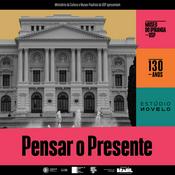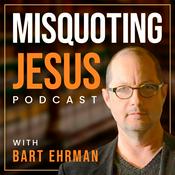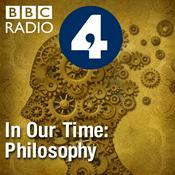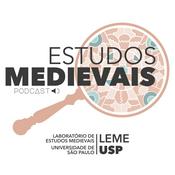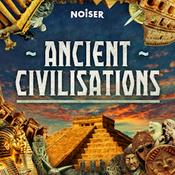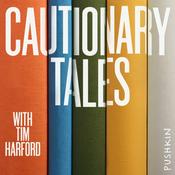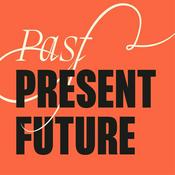12 episódios

Artists Against the Eiffel Tower (1887)
15/9/2025 | 4min
The Eiffel Tower is as iconic of France as croissants and baguettes, and equally emblematic of Paris as Notre-Dame or the Arc de Triomphe.Yet, before completion for the 1889 World’s Fair - the project was treated by some as an industrialist “Tower of Babel” that was anti-ethical to French taste and culture.A month after construction of the Tower began in 1887, a group of prominent French artists published an open letter titled ‘Artists against the Eiffel Tower’ featured on the front page of Parisian Newspaper ‘Les Temps.’ It began: "We, writers, painters, sculptors, architects, amateurs impassioned with the beauty, until now intact, of Paris, are coming to protest with all our might and all our indignation, in the name of unrecognized French taste, in the name of threatened French art & history, against the erection, in the very heart of our capital, of the useless and monstrous Eiffel Tower…"

😷 'S.F. Feels Good Without Mask' - 1918, The San Francisco Examiner
09/12/2021 | 6min
In the 1918 Spanish Flu pandemic San Francisco quickly instituted a mask mandate, when it was repealed there was a countdown in the streets and jubilation as reported on the front page of The San Francisco Examiner. To the right of the report was a piece by Annie Laurie celebrating the moment and lamenting how smiles had been hidden away, she declared the pandemic over and a return of smiling - however not long after this mask rules were put back in place as a spike in flu cases occurred. 'S.F. Feels Good Without Mask - It Hides the Only Thing Worth While - This City Always Has a Smile' - The San Francisco Examiner, San Francisco, California, 22 Nov 1918, Fri • Page 9

📻 Weird, Ghostly and “Supernatural” Antics of the Radio (1931)
31/10/2021 | 29min
Did the rise of 19th century technologies - such as radio - lead to an increase in ghostly sightings? That’s the question Atlantic writer Derek Thompson asked on Twitter this week and it brought to mind a 1930s piece from the archive titled: Weird, Ghostly and “Supernatural” Antics of the Radio that could hint at an answer (yes!) The 1931 San Francisco Examiner peice consisted of a heavily illustrated two-page spread about fictitious reports of ghostly sounds, prompted by the rise of radio boradcasting. It explored reports of strange sounds eminating from everyday objects - which some thought were supernatural forces - but experts insisted were actually rogue radio waves being picked up by metal objects. Source: 📰 The San Francisco Examiner1931 📅 Sun, Sep 13, 1931 · Page 100 http://pessimistsarchive.org/list/radio/clippings/1931/m-sc-535-217 🎙 Backing Music: Louisiana by Duke Ellington and His Orchestra; Razaf; Schafer; Johnson - Brunswick (02650-B) Publication date 1938 Topics 78rpm, DanceDigitizing sponsor Kahle/Austin Foundation Contributor Internet Archive Language English - https://archive.org/details/78_louisiana_duke-ellington-and-his-orchestra-razaf-schafer-johnson_gbia0064586b/Louisiana+-+Duke+Ellington+and+His+Orchestra-restored.flac

✈️ “A Skeptical Nation Visits Upon the Airplane the Doubts it Once Felt for the Automobile" - The New York Times, 1928
27/9/2021 | 17min
At the end of the 1920s aeroplanes were becoming a more common sight in the skies, in 1928 The New York Times reported on growing public disdain, comparing it to past reactions to transport innovations like the automobile and bicycle. The piece was subtitled “A Skeptical Nation Visits Upon the Airplane the Doubts it Once Felt for the Automobile” explores many of the patterns we see today play out with electric scooters, bicycles and self-driving cars. 🗞 Source: https://timesmachine.nytimes.com/timesmachine/1928/12/23/95862830.pdf?pdf_redirect=true&ip=0

💉 'An Absurd Prejudice' - The New York Times, 1875
27/8/2021 | 6min
146 years ago The New York Times published an article lamenting anti-vaxxers, the piece began: "One might suppose that the popular prejudice against vaccination might have died out by this time, considering it has been practice for nearly a century." Today this statement is as amusing as it is painful, when considering anti-vaxxers remain a relevant movement. It rightly observed that “It seems useless to quote science, and a long and successful practice, against such dense stupidity as this. The ignoramus has a prejudice against the regular practitioner, and, with cruel kindness he kills his friend while trying to protect him against the art of a learned physician” going on to say “In spite of all our boasted progress curious revelations of popular ignorance and superstition are constantly showing us how little advance has been made." It finishes with a prediction “When knowledge is more evenly distributed there will be less of this fantastic and ignorant prejudice” - unfortunately, he was wrong. Source: The New York Times, 1875 https://timesmachine.nytimes.com/timesmachine/1875/08/17/79089660.pdf?pdf_redirect=true&ip=0
Mais podcasts de História
Podcasts em tendência em História
Sobre Pessimists Archive Podcast
Ouça Pessimists Archive Podcast, Dan Carlin's Hardcore History e muitos outros podcasts de todo o mundo com o aplicativo o radio.net

Obtenha o aplicativo gratuito radio.net
- Guardar rádios e podcasts favoritos
- Transmissão via Wi-Fi ou Bluetooth
- Carplay & Android Audo compatìvel
- E ainda mais funções
Obtenha o aplicativo gratuito radio.net
- Guardar rádios e podcasts favoritos
- Transmissão via Wi-Fi ou Bluetooth
- Carplay & Android Audo compatìvel
- E ainda mais funções


Pessimists Archive Podcast
baixe o aplicativo,
ouça.







